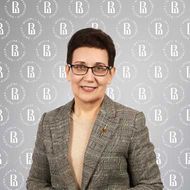- A
- A
- A
- ABC
- ABC
- ABC
- А
- А
- А
- А
- А
- HSE University
- Faculties
- Faculty of Economic Sciences
- School of Finance
- News
- Celebrating 4 Years with Coursera: HSE’s New Online Courses
-
The School
- ABOUT
- Staff Members
- Doctoral Students
- Joint Departments with Partner Companies
-
RESEARCH ACTIVITIES
- Laboratories
- Series “Advanced Studies in Emerging Market’s Finance” at Springer Nature o Networking with International Academic Associations
- Networking with International Academic Associations
- Journal of Corporate Finance Research
- Research Seminars
- International PhD Workshop
- International Seminar “Systemic Risks in the Financial Sector”
- International Conference «ESG Corporate Dynamics: the Challenges for Emerging Capital Markets»
- Yasin (April) International Academic Conference
-
RESEARCH WORKING GROUPS
- Research Working Group "Innovations in the Banking Sector, its Financial Stability and Prudential Regulation"
- BUSINESS EDUCATION
- Networking with Business Associations
- Networking with Professional Associations
-
DATABASES
-
119049 Moscow, Russia
11 Pokrovskiy boulevard, room S629
Phone:
+7 (495) 772-95-90*27447, *27947, *27190
+7 (495) 916-88-08 (Master’s Programme Corporate Finance)
- Email: df@hse.ru
Head of Corporate Finance Research Center, Dr., tenured professor
The HSE School of Finance is the leading Russian competence center in the field of corporate finance, business valuation, banking, stock market, risk management and insurance, accounting and audit.
HSE is the first Russian university in the global ranking "QS - World University Rankings by subject", 2022 in the subject area of Accounting and Finance. Moreover, the university is the 1-st in the rating "THE World University Rankings by subject" in the subject area of Business & Management Studies, 2022
Grishunin S., Ivashkovskaya I., Brendeleva N. et al.
Journal of Corporate Finance Research. 2025. Vol. 19. No. 1. P. 25-40.
Badr I., Rawnaa Ibrahim, Hussainey K.
In bk.: Opportunities and Risks in AI for Business Development. Vol. 2: Opportunities and Risks in AI for Business Development. Prt. 636. Springer, 2025. P. 385-399.
Financial Economics. WP HSE. HSE University, 2025. No. 1/FE/2025.

Celebrating 4 Years with Coursera: HSE’s New Online Courses

By early spring, HSE will have launched a range of new courses on Coursera in psychology, computer language analysis, economics, media and international relations.
Four years ago, on February 24, 2014, HSE’s first online course in Financial Markets and Institutes was launched on the Coursera platform by Nikolay Berzon, Professor at the School of Finance at HSE’s Faculty of Economic Sciences. HSE became one of the first three Russian universities to launch a course on the platform. Online lectures by Nikolay Berzon are still among the most successful: according to general data from Coursera, an average of 5-8% of students who register for a course successfully pass their final course exam. However, for Professor Berzon’s course, this figure is as high as 18%.
Over these four years, HSE has offered more than 80 courses on Coursera in both Russian and English, and, according to data from 2017, 1 230 000 people registered for them. But it doesn’t stop there: HSE continues to launch new courses taught by the university’s best teachers. Towards the end of February/beginning of March, four new English-language courses and one Russian-language course will begin on Coursera.
Natural Language Processing and How to Create a Chat-Bot
‘Natural Language Processing’ is a course that was developed by the staff of the Joint Department with Yandex at HSE’s Faculty of Computer Science and will start on February 25. The course has been designed for those who possess basic knowledge of this field, at the junction of computer linguistics and artificial intelligence, and are interested in the processing of natural languages and how different technologies work, such as automatic translations, auto-correct on a computer or phone, and chat bots. How do computers learn to hear, understand and answer us? How can we, in turn, learn to speak with machines in their language? At the end of the course, you will create your own chat-bot which will assist you in using Stack Overflow - a system of questions and answers related to programming.
Participants should have basic knowledge of linear algebra, probability theory, machine learning algorithms, and the principles of creating and using neural networks. The teachers and authors of the course coordinators include senior lecturer at HSE’s Joint Department with Yandex, Andrey Zimovnov, associate professor, Alexey Zobnin, postgraduate student, Anna Potapenko, and Yandex employees, Anna Kozlova and Sergey Yudin. The course is taught as part of the Advanced Machine Learning specialization . This five-week course will be held in English. Participants should allocate 4-5 hours per week for working on assignments.
Managing Markets, Game Theory and the Art of Negotiation
The course, ‘Industrial Organization: Strategy and Competition in Business’ is due to begin as winter comes to an end. It focuses on economic mechanisms from the point of view of industrial organizations and will be conducted in English. Lecturer and Assistant Professor at HSE’s Faculty of Economic Sciences and the International College of Economics and Finance, Kosmas Marinakis, will talk about markets functioning as economic institutions, competition and the strategic interaction of enterprises, as well as key decisions around industrial policy and business. Markets will be examined from three perspectives: from the point of view of economic theory, from a business perspective, and in terms of the institutional and legal aspects. Kosmas Marinakis will use scientific research data and case studies in discussing methods of economic modeling and the fundamentals of game theory. The course also includes electronic markets, intellectual property, antimonopoly regulation and negotiations. Participants will examine the features of market structure and strategic competition and will develop their management, negotiation and analytical skills in the business sphere.
Participants should have basic knowledge of the principles of economic modeling as well as the fundamental concepts of microeconomics (theories of production, value, etc.), game theory and econometrics. The course is intended primarily for graduates of bachelor's programmes and students of master's programmes in the area of economics. It lasts for ten weeks and participants should allocate approximately 4 hours per week to working on assignments. The course is scheduled to begin on February 28. For more information, see the course homepage.
The Culture Industry: from Concept to Business Model
The course, ‘Culture and Creative Industry’, will be taught in English. The cultural and creative industries have often been treated as a single entity, but teacher, Ilya Kiriya, Professor at HSE’s School of Media at the Faculty of Communications, Media and Design, believes that these are two different concepts. The course will examine the development of the cultural and creative industries as ideas and concepts, and against the backdrop of the modern digital world.
One of the aims of the course is to understand the difference between the cultural and symbolic products of the industries (for example, films, music, books, periodicals, media content, etc.). Participants will examine what the cultural industries produce, what a cultural product is and how cultural and symbolic products differ from the products of other sectors of the economy, in terms of the features of economic processes (risks, stages of production, etc.). They will also learn to analyse this particular type of product using business models, as well as create new business models and analyse cultural industry products in terms of production risks. Students will enhance their skills in analysing cultural policies and the strategies of creative industries.
The course is designed for students of master's programmes who are interested in media, economics and management in the cultural sphere, as well as for those with knowledge of areas such as political economy of communications, sociology and culturology. The course lasts for eight weeks, and students should allocate an average of four hours per week. The approximate start date is March 1. See the course homepage for more information.
International Relations: History and Modernity
Another English-language course entitled, ‘Understanding International Relations Theory’, will soon begin on Coursera. Over 12 weeks, students will examine the key facets of the theory of international relations as a field of the social sciences and as an analytical tool relating to issues such as war and peace and decision-making in international politics. Associate Professor, Timofey Bordachev, and Senior Lecturer at HSE’s Faculty of World Economy and International Affairs, Dmitry Suslov, will apply a historical approach to their discussion of current foreign policy problems.
Students will examine the evolution of the theory of international relations from what was a political philosophy to the now independent branch of political science. They will discuss the key aspects of modern foreign policy, including the rise of China and other developing countries, the threat of world terrorism, and relations between Russia and the United States. Key course topics include the role of power in international relations, international economic relations, international security and conflict resolution issues, and global governance. Students should allocate approximately 4 hours per week to working on assignments. Estimated start date - March 5. See the course homepage for more information.
Alexey Zobnin
Ilya Kiriya
Kosmas Marinakis
Anna Potapenko
- About
- About
- Key Figures & Facts
- Sustainability at HSE University
- Faculties & Departments
- International Partnerships
- Faculty & Staff
- HSE Buildings
- Public Enquiries
- Studies
- Admissions
- Programme Catalogue
- Undergraduate
- Graduate
- Exchange Programmes
- Summer Schools
- Semester in Moscow
- Business Internship
-
https://elearning.hse.ru/en/mooc/
Massive Open Online Courses
-
https://www.hse.ru/en/visual/
HSE Site for the Visually Impaired
-
http://5top100.com/
Russian Academic Excellence Project 5-100
- © HSE University 1993–2025 Contacts Copyright Privacy Policy Site Map
- Edit




